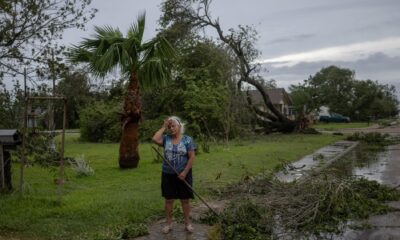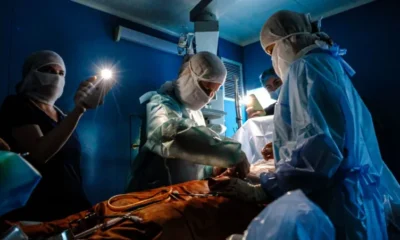As COVID-19 cases surge in Ontario, doctors and nurses said ICU capacity is being stretched to its limit, and staffing continues to be the biggest challenge at hand.
“It is an atmosphere of stress, stress is in the air in ICU,” said Birgit Umaigba, an ICU nurse based in Toronto.
Umaigba says when she goes into work, it is a guessing game about how many people will be there. “We never know how many nurses, or even respiratory therapists, or even clerks we will be having on any given shift.”
Currently, in Ontario, more COVID-19 patients are in the ICU than at any other point during the pandemic. On Friday, Critical Care Services Ontario reported out of the 1,846 ICU patients, 572 were COVID-19 related illnesses, 77 had been admitted within a 24-hour period.
Read more:
‘Tipping point’: A look inside Canada’s hospitals as COVID-19 variants surge
“Ontario has about 2,300 ICU beds,” said Dr. Michael Warner, Critical Care Director at Michael Garron Hospital in Toronto. “In practice, though we have far fewer because we simply cannot staff them.”
Dr. Shankar Sivananthan said there are many reasons for staffing challenges.
“Nurses may be sick, they may have family members or children who are sick and when that happens, they can’t come to work for two weeks,” Sivananthan said. “That’s a huge burden on us that limits how we can staff our beds.”
The province took new measures Friday to address the staffing challenges and implemented emergency orders. Part of those directives allows health-care workers to be redeployed to hospitals. But experts said it is not necessarily a straightforward process to bring in people to work in an ICU, as the job requires people to have additional training and specialized skills.
Read more:
Ontario ICU capacity reaching critical level due to COVID-19 variants: hospital group
“It’s hard on people to parachute people into units, and we want it to be on a volunteer basis to start with,” said Vicki McKenna, the provincial president of the Ontario Nurses’ Association. “We have to accept that they need training and support in the units that they are going into.”
“That learning curve is very steep,” Sivananthan said. “The nurses that are specially trained are being stretched thin as is, and the teaching that they will have to be doing is another item on the list of long things that they’ve got to do.”
Umaigba said getting additional support will help, but the stress remains.
“Any help right now is help, but again we are putting band-aides on problems that are duplicating by the minute.”
Must See
-




Entertainment
/ 3 weeks agoFaveSzn’s Revelation: Dating Choirmaster at 10 and Sexual Curiosity
Nigerian singer, Chidozie Ugochinyere, popularly known as FaveSzn, has revealed that she once dated...
By Flying Eze -






Europe
/ 3 weeks agoWhy Hungarian Prime Minister Orban visited
Two months later, the leaders of China and Hungary met again. Hungarian Prime Minister...
By Flying Eze -






News
/ 3 weeks agoThree dead and millions without power as Tropical Storm Beryl hits Texas
Man, 53, and woman, 74, killed by fallen trees and third person drowns amid...
By Flying Eze



